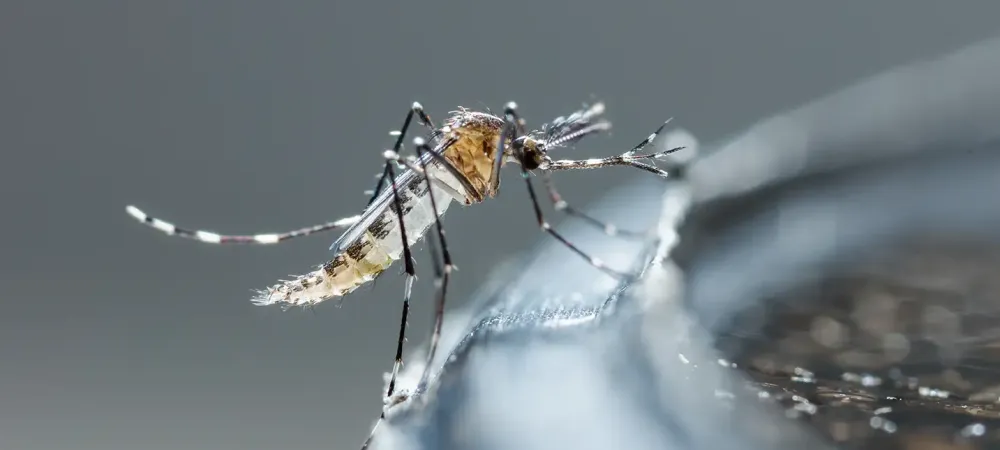Comprehensive Guide to Pest Control in North Carolina: Prevent Common Household Pests

North Carolina’s diverse climate and natural landscapes make it a beautiful place to live—but also a prime environment for a wide range of household pests. From humid summers to mild winters, each season brings its own pest challenges. Whether you're dealing with ants in the kitchen, mosquitoes in the backyard, or rodents in the attic, understanding how to protect your home is key.
This comprehensive guide will walk you through common pests in North Carolina, seasonal pest control strategies, signs that it’s time to call a professional, and region-specific tips to keep your home pest-free year-round.
Common Pests in North Carolina Homes
1. Ants
Ants are among the most common household pests in NC, especially during the warmer months. Carpenter ants and odorous house ants frequently invade homes in search of food and shelter.
Prevention Tip: Seal cracks in your foundation, keep food stored properly, and eliminate standing water near your home.
2. Cockroaches
German and American cockroaches thrive in North Carolina’s humid climate, particularly in kitchens, bathrooms, and basements.
Prevention Tip: Keep your home clean and dry, reduce clutter, and fix leaks quickly.
3. Rodents
Mice and rats seek warmth and food indoors during the fall and winter months. They can chew through wires and insulation, posing health and fire risks.
Prevention Tip: Seal entry points around doors, windows, and utility lines. Store food in airtight containers and keep garbage covered.
4. Mosquitoes
Mosquitoes are a major concern in the spring and summer, especially with North Carolina's humidity and rainfall. They’re not only a nuisance but also transmit diseases like West Nile virus and Zika.
Prevention Tip: Eliminate standing water in birdbaths, gutters, and flowerpots. Use repellents and install screens on windows and doors.
5. Termites
Eastern subterranean termites are especially problematic in NC. These silent destroyers cause significant damage before homeowners even realize there's a problem.
Prevention Tip: Schedule regular termite inspections. Keep mulch and wood debris away from your home’s foundation.
6. Stinging Insects
Wasps, hornets, and yellow jackets become aggressive in late summer and early fall. Their nests can be dangerous if disturbed.
Prevention Tip: Inspect your property regularly for nests under eaves, in bushes, or around outdoor structures. Don’t attempt removal without proper protection.
Seasonal Pest Control Tips for North Carolina Homeowners
Spring
- Inspect for termite activity.
- Seal cracks and crevices before pests become active.
- Begin mosquito prevention efforts.
Summer
- Maintain your yard to reduce tick and mosquito habitats.
- Check for stinging insect nests.
- Keep indoor spaces dry and cool to deter cockroaches and ants.
Fall
- Inspect and seal gaps around doors, windows, and foundations.
- Store firewood away from the house.
- Begin rodent-proofing your home.
Winter
- Monitor for rodent activity in basements and attics.
- Schedule a professional pest inspection.
- Ensure humidity levels are controlled inside the home.
When to Call a Pest Control Professional
While DIY pest control measures can help with prevention, there are times when calling a professional is your best option. This includes:
- Persistent infestations that don't improve with store-bought solutions.
- Visible damage, such as wood deterioration or chewed wires.
- Unusual sounds or odors, particularly in walls or ceilings.
- Signs of nests or droppings, indicating active infestations.
Benefits of Professional Pest Control
- Accurate identification and treatment of pests.
- Safer, targeted use of pesticides.
- Long-term prevention plans.
- Expertise in dealing with regional pest behaviors and seasonal patterns.
North Carolina-Specific Pest Prevention Tips
Due to North Carolina's humid subtropical climate, pest control requires tailored strategies:
- Humidity Control: Use dehumidifiers in basements and crawl spaces to deter moisture-loving pests like cockroaches and silverfish.
- Landscaping Practices: Trim shrubs and trees away from your home to reduce access points for ants, rodents, and stinging insects.
- Local Wildlife Awareness: Be cautious of pests like raccoons and squirrels, which can become problematic in rural or wooded areas.
Contact A Pro
Living in North Carolina means enjoying all four seasons—but it also means staying vigilant about pest control. With proactive prevention, seasonal maintenance, and help from professionals when needed, you can keep your home safe and pest-free all year long.
Need expert help in managing pests? Reach out to Wolfpack Pest Control, a local pest control specialist with experience in North Carolina’s unique climate and pest patterns. Contact us today!
